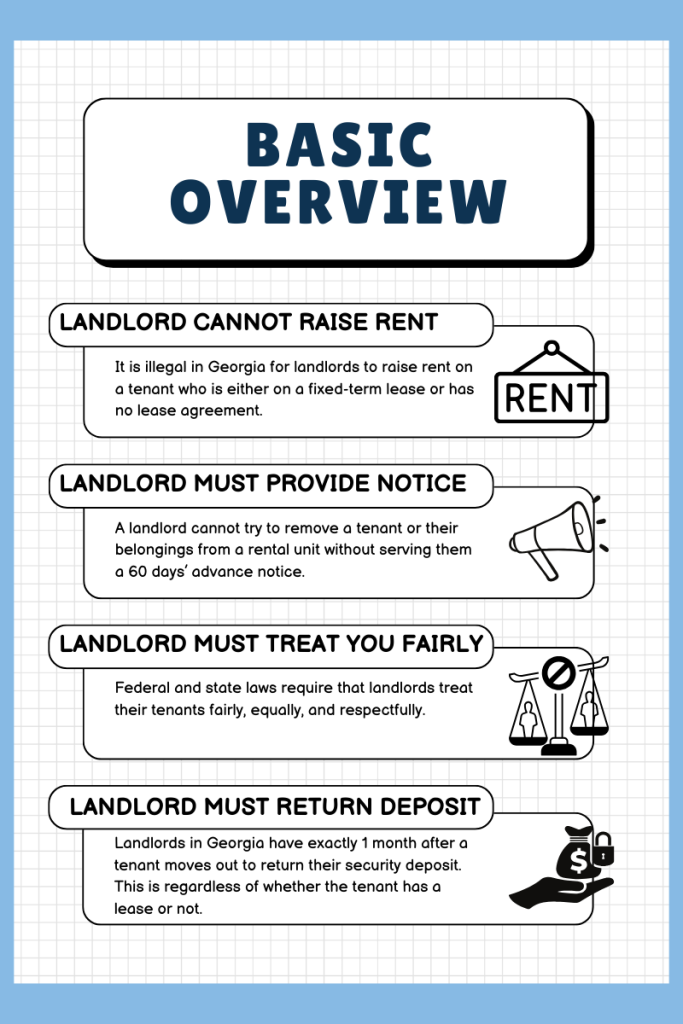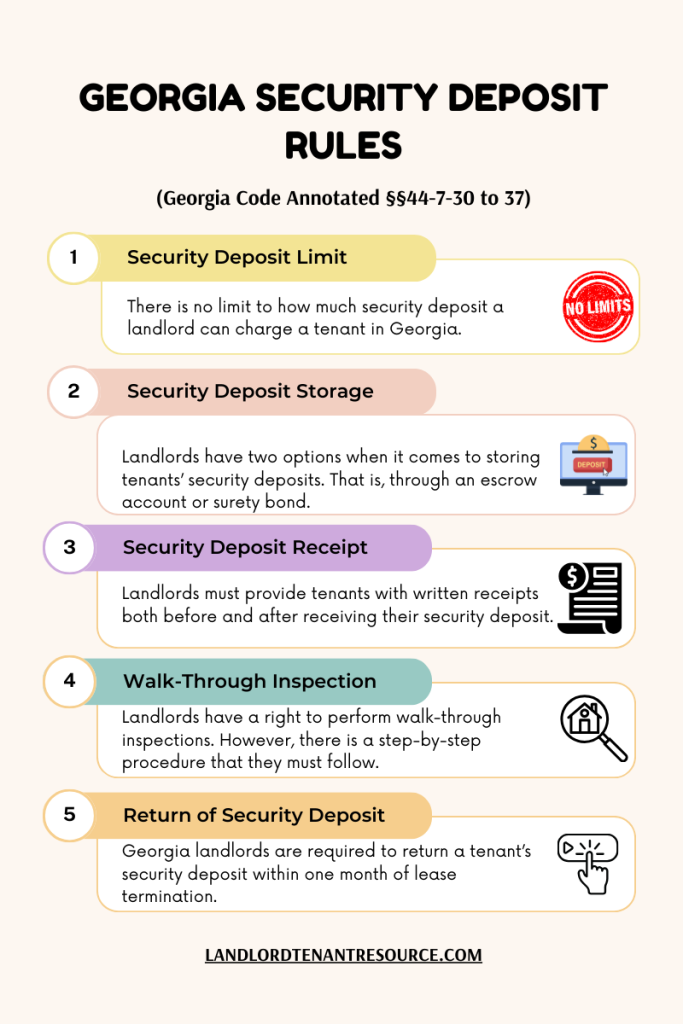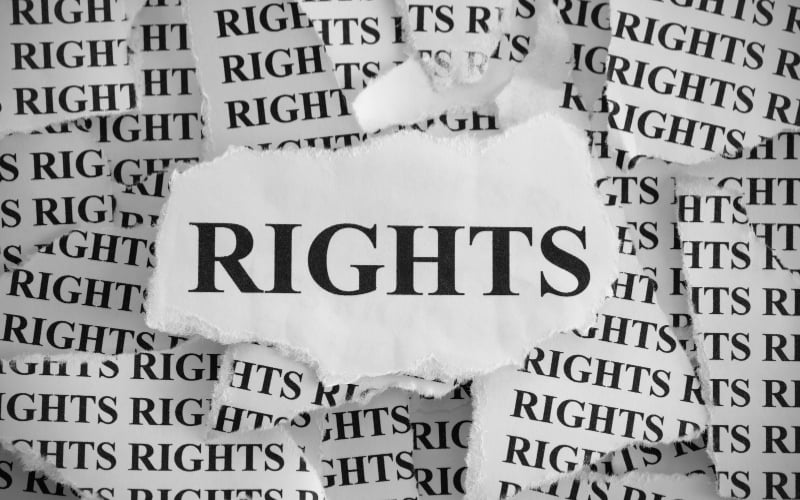Last Updated on April 12, 2024 by Kelvin Nielsen
Even without a written lease, Georgia tenants enjoy certain rights and privileges under state law. For instance, a right to live in a habitable property, a right to be treated fairly, and a right to proper notification before eviction.
In today’s article, we’ll go over everything you need to know when it comes to living in a rental property without a lease agreement.
Key Takeaways:

What Constitutes a Lease Under Georgia Landlord-Tenant Law
Under Title 44, Chapter 7 of Georgia Code, a lease between a landlord and a tenant can be established in either of three ways.
- Written lease – This is usually a document that outlines both the landlord and tenant responsibilities throughout the rental period. Typical clauses in a lease include the landlord’s and tenant’s names, lease term, rent amount, and responsibility for repairs and maintenance.
- Oral agreement – Oral agreements between a landlord and a tenant are also legally binding in the state of Georgia. The agreement is made orally and there is no written contract. Be that as it may, proving an oral agreement during a conflict can become a matter of “he said”, “she said”, which may be less ideal in a court of law.
- If payment is accepted as rent – If the landlord accepts a rent payment (whether before or after a lease is established), that would constitute a legal tenancy.
Georgia Tenant Rights Without a Lease
Now that we have established what exactly constitutes a lease under Georgia law, does it, then, mean that tenants without a lease have no rights under state law? No!
Matter of fact, tenants who have leases and those without it enjoy more or less the same rights. The following are some of the rights tenants without leases enjoy.
1. The landlord cannot raise your rent.
Since there is no actual lease between you and the landlord, the landlord cannot try to raise the rent amount. To raise the rent amount, the landlord would need to sign you up on a new contract, which would detail the rules to abide by during the tenancy (including when and by how much they can raise rent).
2. Ask you to leave without proper notice.
This is another thing that your GA landlord cannot do when you don’t have a lease. In other words, the landlord cannot just wake up one day and try to remove you from the premises. They would need to serve you a notice in advance; specifically, a 60 days’ notice.
After the 60 days are over, the landlord would then need to seek legal redress to remove you. This would entail filing an eviction lawsuit in the appropriate court. From start to finish, this process can take between 1 and 3 months.
3. Treat you unfairly.
Landlords in Georgia are required by both state and federal law to treat tenants fairly, equally, and respectfully. Federal law protects all tenants in all the 50 U.S. states on the basis of 7 classes. That is, race, color, sex, nationality, religion, familial status, and disability.
Georgia state law, unlike some other states, though, doesn’t provide extra protections.
4. Right to live free from retaliation.
Landlord retaliation is where the landlord threatens or harasses a tenant for taking legal action against them. The legal actions can entail things like reporting the landlord to a local health agency or suing the landlord for illegal entry.
5. Right to the return of your security deposit.
Georgia Code Annotated §§44-7-30 to 37 sets forth certain specific rules that landlords must follow when handling a tenant’s security deposit. The following is a basic overview of those rules.

Even without a lease, the landlord cannot refuse to return your security deposit. They must return it (or whatever portion remains) after you have moved out. And specifically, they must do so within 1 month of you moving out.
The only deductions the landlord can make are for damages exceeding normal wear and tear. Examples of such damages include missing door knobs, smashed windows, missing appliances, and holes in walls.
Conclusion
In Georgia, just like most states in the country, tenants without a lease enjoy certain rights. Your landlord cannot evict you from the property without notice, treat you unfairly, retaliate against you, or withhold part or all of your security deposit, among other things.
Sources: Georgia Landlord Tenant Rights, Warranty of Habitability in Georgia, GA Landlord Tenant Handbook, GA Landlord-Tenant Law
Disclosure: The content herein isn’t a substitute for advice from a professional attorney. It’s only meant to serve educational purposes. If you have a specific question, kindly seek expert attorney services.
If you’d like expert legal services, please do not hesitate to reach us through this page.

Hi, I’m Kelvin Nielsen, an experienced landlord and accomplished real estate lawyer. My focus is on answering your questions about renting in the hopes of making your life as a renter or a landlord a bit easier.







